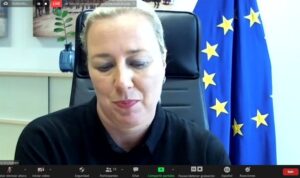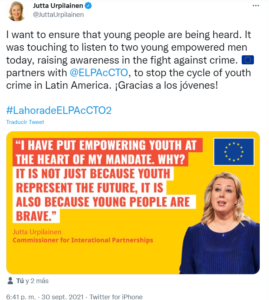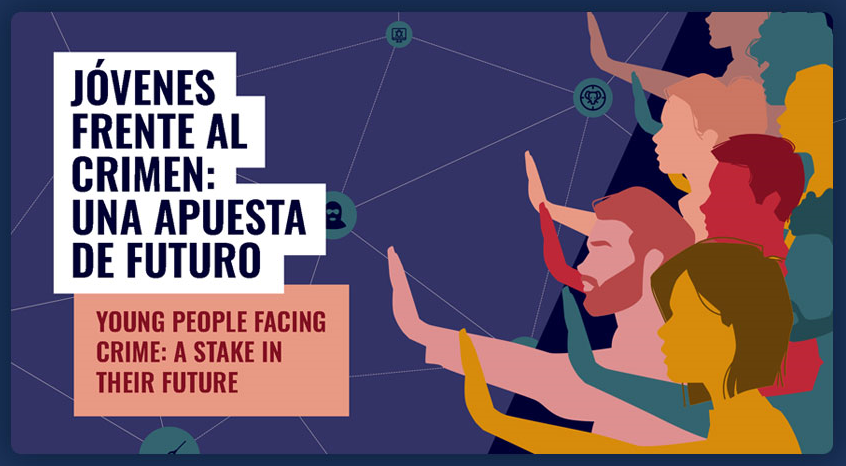“Europe is with you. Our security and justice institutions are committed to the fight against criminal networks in Latin America, but also against the causes that generate this violence, both social and economic, stimulating access for young people to employment and education”. With these words Commissioner Jutta Urpilainen yesterday questioned Daniel Portillo and Antonio Sosa [fictitious names], who had succeeded in rehabilitating themselves after years of violence and destruction in gangs in El Salvador. Questioned by the commissioner about the reasons that led him to join a gang, Daniel talked about the hatred and desire for revenge he felt towards his abusive father. Antonio also pointed to financial reasons: “The need to provide for your family. Only when I was able to learn a trade and they helped me with a small amount of capital to open a barber’s shop did I understand that there was an alternative”.

After a first episode focused on women and crime, the second event of The Hour of EL PAcCTO, held yesterday, centred on the role of young people who fight organised crime in a leadership role. These testimonies and experiences aspire to empower an entire generation that also has much to contribute to the development of public policies on transborder organised crime.
Public policies WITH young people and not just FOR young people
The cooperation agencies that coordinate EL PAcCTO were also represented at the event: “Any public policy that aims to be effective in the fight against organised crime must have the participation of young people to formulate measures appropriate to their situation, ” explained FIIAPP director Anna Terrón.
For his part, Jérémie Pellet, director of Expertise France, added: “Young people are key players in the future and their voices need to be heard when we debate public policies and strategies in all areas that impact their present and future.”
Young people: leaders against organised crime
Adriana Tostón, a Guardia Civil commander and among the 40 best young police officers in the world according to the list of the International Association of Chiefs of Police (IACP), provided one of the keys to solving the problem: “We have to ensure that crime no longer pays. Therefore we have to stop confining our work to arresting criminals, and work harder to dismantle the economic structure of criminal organisations”. Tostón also placed value on the greater technological knowledge young people have to face the problem: “Crime evolves, we cannot just keep on offering the same solutions and it cannot just always be the same people doing it”.
Nicolás Zevallos, criminologist and former Deputy Minister of Citizen Security of Peru, called for public policies aimed at strengthening the social fabric: “We must develop community and family support networks so that the gang is not the only way out of desperate situations”.
Pilar Díaz, director of the Special Prosecutor’s Office for Gender and Juvenile Crime of Bolivia emphasised the educational opportunities: “In Bolivia these young people usually come from rural and urban environments in great financial need and with family conflicts. It is vital to offer them the opportunity for free education”.
Fabio de Gemmis, an activist of the NGO LIBERA and a partner and worker in the La Strada cooperative – dedicated to converting spaces confiscated from the Camorra to social purposes – pointed to the burning need for young people to trust institutions: “If we talk about social justice and the struggle against poverty, we have to be consistent, we can’t have corrupt institutions, institutions have to be credible, the youth-institutions relationship must create a sense of community, we have to show them that we are counting on them”.
In addition to drawing attention to and raising awareness on the role of young people who lead the fight against organised crime in different spheres, EL PAcCTO hopes to be able to keep the meeting going and that the reflections that have emerged will be transferred to public policies that include young people.

